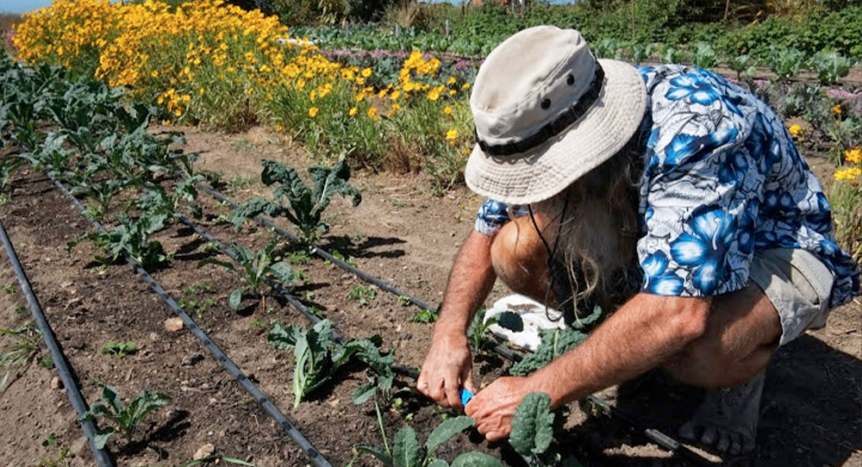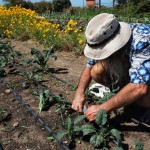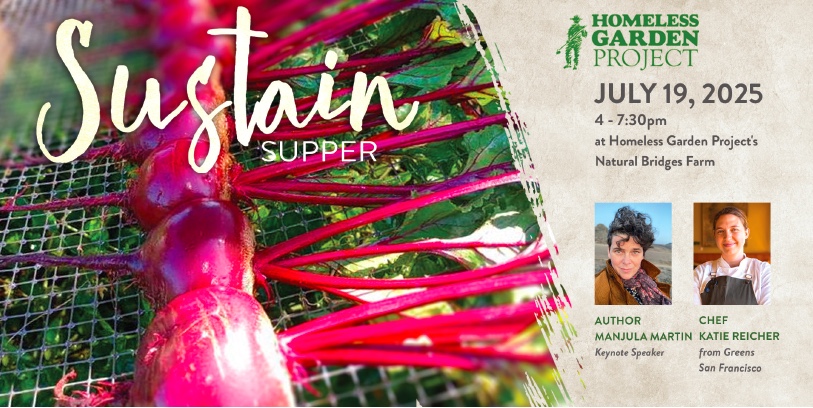The training program at the Homeless Garden Project serves as a principle mechanism to ensure HGP achieves our mission, which states “in the soil of our urban farm and garden, people find the tools they need to build a home in the world”.
In interviewing prospective trainees, our staff looks at three central qualifying features in a candidate. A candidate needs to be homeless or in true need, be able to work as part of our team, and commit to creating positive change in their life. The change we seek to cultivate in partnership with our trainees, is the trainee moving out of homelessness and unemployment into a more self sufficient and sustainable living situation.
HGP’s training program is based off a model called transitional employment. Realizing we are a stepping stone or temporary position where people can gather themselves, settle into the rhythm of our farm, and gain skills that will propel them into permanent employment, we aim to structure our program in an efficient way. Each trainee is assigned to a certain “training post” or area of the farm where they will focus their learning and skill development over a 10 week period.
Examples of “training posts” include the greenhouse, farm stand, kitchen, vegetable fields, compost operation, and fresh flower production. Within this 10 week period, trainees complete a curriculum of specific learning outcomes and skill development directly related to the post. This structure ensures trainees’ involvement, and offers trainees a sense of “ownership” and pride in the culminating work accomplishment, such as our CSA harvest. For instance, in the kitchen post, trainees learn to prepare a menu for lunch, coordinate with our vegetable production crew to harvest vegetables onsite, assign volunteers tasks such as rinsing and chopping, and serve a wholesome meal in a timely manner. In the process they learn about nutrition, how to create a balanced meal, and develop cooking habits that they take with them for the rest of their lives.
As trainees develop through their posts, they receive increased responsibilities and operate more independently in key positions of the farm. They take on tasks such as leading farm tours, supervising and training volunteers, conducting classes, and developing site specific projects. Mike Thornley, a trainee who began work with the project during the fall of last year, has made great strides in learning about our farm operation and systems of organic agriculture.
“Being homeless, there is a fear of taking the risk to make your life better, especially when applying for jobs. In our posts and on the farm I’m taking risks all the time. As I learn new things and take on more responsibility I’m in a place to teach others.”
In addition to in-field training and “posts,” each Wednesday, the entire crew participates in the farm’s weekly lecture series which covers a wide variety of topics ranging from building a resume and obtaining work outside the farm, to nutrition education, technical farming practices, soil science, and water conservation. These lectures are taught by HGP staff and experts from the local community.
Success through the program comes not solely with completion of a post or attainment of a completed certificate. Success is defined by each individuals’ progress along their specific exit plan or goal map. When the barriers are broken down to obtaining self sufficiency, people can transition out of our program and live a healthy, balanced, secure life. And it serves to inspire us all.
–Chris Omer is Homeless Garden Project’s Farm Supervisor




